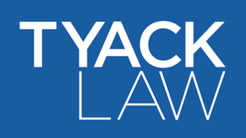
Medical debts often occur after an accident or sudden illness—and can even incur when a consumer is insured and in non-emergency situations. Consumers are rarely informed of the costs of medical treatment in advance and may have little or no ability to look for in-network providers in some situations.
Effective January 1, 2022, the No Surprises Act (NSA) consumers who have a group health plan or group or individual health insurance coverage are protected from surprise medical billing by banning:
- Surprise bills for emergency services from an out-of-network provider or facility and without prior authorization;
- Out-of-network cost-sharing (i.e., out-of-network coinsurance or copayments) for all emergency and some non-emergency services; and
- Out-of-network charges and balance bills for supplemental care (like radiology or anesthesiology) by out-of-network providers that work at an in-network facility.
The No Surprises Act also requires some health care facilities and providers to disclose Federal and State patient protections against balance billing and sets forth complaint processes with respect to violations of the protections against balance billing and out-of-network cost sharing.
What is a surprise medical bill?
A surprise medical bill occurs when an insured consumer inadvertently receives care from out-of-network hospitals, doctors, or other providers they did not choose. This often happens in emergency room visits, but also can happen in non-emergency hospitalizations (for instance, when the anesthesiologists whom the patient did not choose is an out-of-network provider).
When health plans deny out-of-network claims (or apply higher out-of-network cost sharing), consumers will be sent this “surprise medical bill” for care from a provider whom the insured consumer did not choose.
Consumers also may experience “balance billing” from out-of-network providers that have not contracted to accept discounted payment rates from the health plan. This typically happens when there is a difference between the amount owed and the amount an individual’s insurer pays. That difference is billed to the person, this is called balance billing. Receiving an unexpected balance bill is a “surprise medical bill.”
What kind of healthcare plans are covered by the No Surprises Act?
The No Surprises Act covers employer provided healthcare (including federal and state healthcare plans), plans purchased using the healthcare.gov marketplace, or plans purchased directly from insurance providers. Medicare and Medicaid plans are not covered under this act.
For more information about the No Surprises Act, visit:
- https://www.cms.gov/nosurprises/policies-and-resources/overview-of-rules-fact-sheets
- https://www.cms.gov/newsroom/fact-sheets/what-you-need-know-about-biden-harris-administrations-actions-prevent-surprise-billing
- https://www.cms.gov/nosurprises/consumers/new-protections-for-you
- https://www.consumerfinance.gov/ask-cfpb/what-is-a-surprise-medical-bill-and-what-should-i-know-about-the-no-surprises-act-en-2123/
Talk with an experienced Lawyer today
Fill out the form to get started with your case evaluation.













